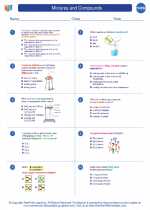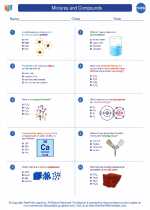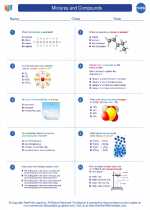Symptoms in Chemistry
In chemistry, a symptom refers to an observable characteristic or change that indicates the presence of a particular substance, reaction, or condition. Identifying and interpreting symptoms is an essential skill in experimental chemistry and analytical chemistry.
Common Symptoms in Chemistry
- Color Change: A change in the color of a substance can indicate a chemical reaction or a change in the oxidation state of the elements involved.
- Precipitate Formation: The formation of a solid precipitate when two solutions are mixed can indicate the presence of a particular compound.
- Gas Evolution: The release of a gas, such as bubbles or a change in volume of a gas, can indicate a chemical reaction or a change in pressure.
- Temperature Change: A noticeable change in temperature, either an increase or decrease, can indicate an exothermic or endothermic reaction.
- Odor Change: A change in the smell of a substance can indicate a chemical reaction or the presence of specific functional groups.
- Change in Physical State: A change from solid to liquid, liquid to gas, or any other change in physical state can indicate a change in the conditions of the substance.
Studying Symptoms in Chemistry
To study symptoms in chemistry, it is important to conduct controlled experiments and make detailed observations. Here are some steps to follow when studying symptoms:
- Identify the System: Clearly define the substances or conditions being studied and the expected outcomes.
- Make Detailed Observations: Use all available senses to observe changes in color, texture, temperature, odor, and any other relevant characteristics.
- Record Data: Keep a detailed record of all observations, including the time at which symptoms appear and any other relevant environmental conditions.
- Repeat Experiments: Conduct experiments multiple times to ensure that the observed symptoms are consistent and reproducible.
- Draw Conclusions: Use the observed symptoms to draw conclusions about the presence of specific substances or the occurrence of particular reactions.
By understanding and studying symptoms in chemistry, one can gain valuable insights into the behavior of substances and the underlying chemical processes.
.◂Chemistry Worksheets and Study Guides High School. Mixtures and Compounds
Worksheet/Answer key Mixtures and Compounds
Mixtures and Compounds  Worksheet/Answer key
Worksheet/Answer key Mixtures and Compounds
Mixtures and Compounds  Worksheet/Answer key
Worksheet/Answer key Mixtures and Compounds
Mixtures and Compounds 

 Worksheet/Answer key
Worksheet/Answer key
 Worksheet/Answer key
Worksheet/Answer key

The resources above cover the following skills:
Chemistry II
Properties of Matter
Develop and use models to explain the differences between chemical compounds using patterns as a method for identification.
Use mathematical representations to quantify matter through the analysis of patterns in chemical compounds.